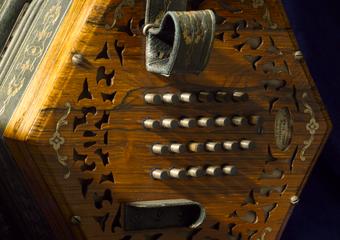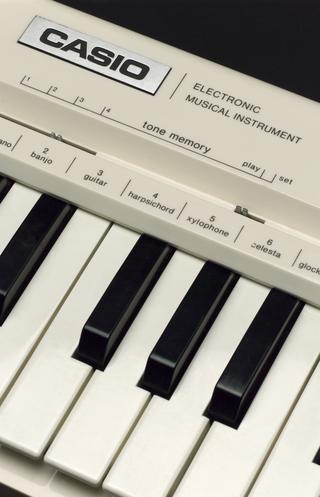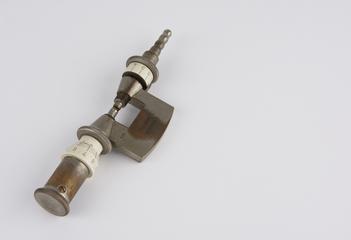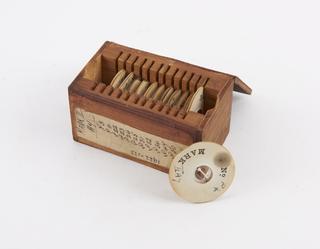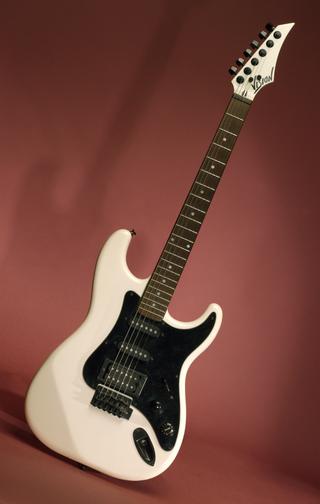
Musical chord and transposition calculator slide rule
- Made:
- 1979 in Hawaii county








The Chord Board is an unusual type of non-technical slide rule, a musical chord and transposition calculator slide rule, created by musician Martin H. Samuel while playing in a musical band in Hawaii and was printed by Datalizer, Chicago in 1979. The slide rule was designed as a type of 'chord dictionary', showing the notes necessary to form chords or a quick and visual way to calculate musical chords – to transpose chords from one key to another.
The Chord Board is an unusual type of non-technical slide rule, a musical chord and transposition calculator slide rule, created by musician and surfer Martin H. Samuel while playing in Bright Eye Band (a musical band) in Hawaii and was printed by Datalizer, Chicago in 1979. Mr Samuel came up with the name “Chord Board” as “board cord” was another name for the surf board leash he used when surfing.
The slide rule was designed as a type of 'chord dictionary', showing the notes necessary to form chords or a quick and visual way to calculate musical chords – to transpose chords from one key to another. It was designed as a means of reference for musicians, singers, songwriters, choirs, composers and arrangers as well as a convenient teaching and learning tool for teachers and students of music at all levels. The multi-coloured chart represents a two-octave piano keyboard with numbered note positions and a centre slide that displays the notes. Chords consist of three or more notes of any scale with major chords in the upper colour-coded chart section and minor chords, the lower chart section.
While designing the Chord Board, Mr Samuel considered a circular slide-rule but decided a rectangular rule being more tactile, easier to handle and, with black and white keys as on a piano keyboard, instantly recognizable and easier to read. In 1979, Mr Samuel created a copy of his prototype and sent it to Datalizer, a slide rule manufacturer in Chicago, Illinois, who printed several thousand cardboard Chord Board slide rules that included instructions on the reverse and an imprint area on the lower front where a company, shop, music school etc. could apply their name and/or logo.
Details
- Category:
- Acoustics
- Object Number:
- 2018-588
- Materials:
- cardboard and paper (fibre product)
- Measurements:
-
overall: 81 mm x 213 mm 29 g
- type:
- chord board
- credit:
- Martin H. Samuel
